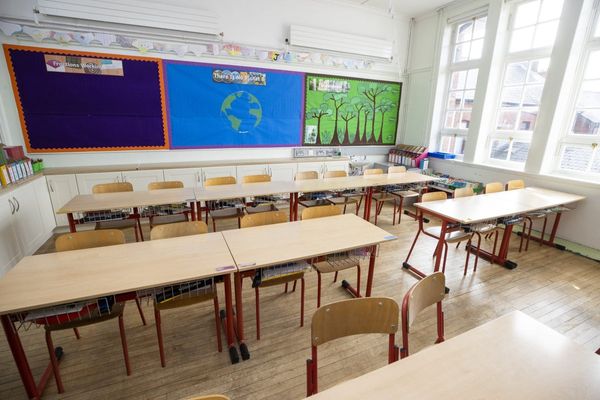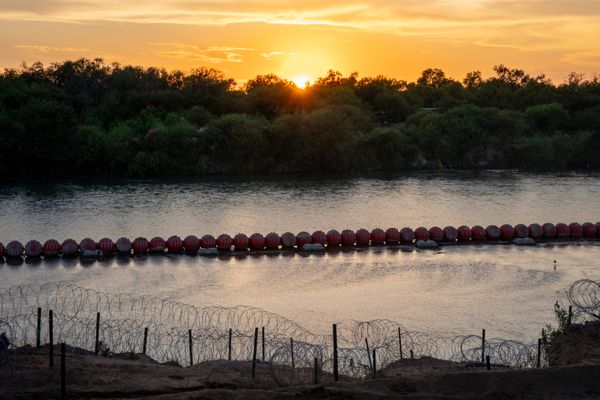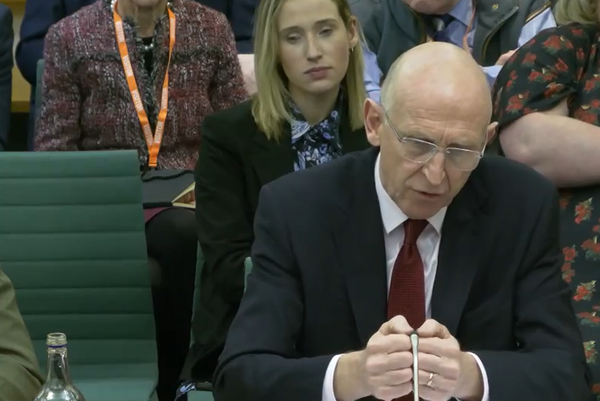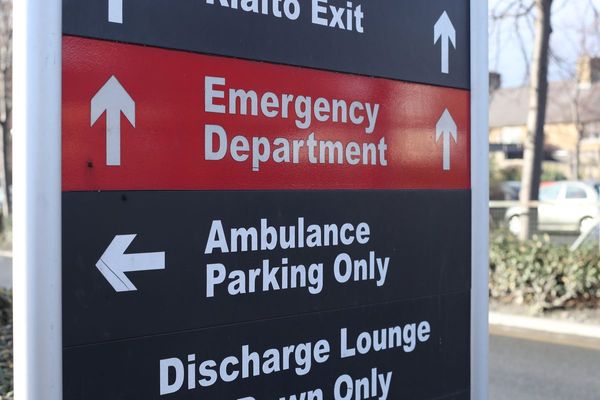
News broke this morning that Nasser hospital in Gaza’s southern city of Khan Younis is in “catastrophic condition” following an Israeli raid. Only a few weeks ago, my friend and colleague Ola, a Gazan paediatrician based in the US, typed to me, her sleep disturbed by the ping of WhatsApp messages. Horrific news was breaking of Israel’s forced evacuation orders in the area around Khan Younis’ last remaining hospitals. “My heart is heavy,” she writes. “I woke up with tears in my eyes.”
“I am trying hard to detach myself from the news, just keep an eye on my family and close friends.” Ola is now watching her homeland from 1,100km away, not there, not here. “But there is a huge gap between my heart and my brain, which in turn affects my body hugely. I have pain all over my body. This pain will never go away.”
Ola updates on her family displaced to southern Gaza — the killing of her brother, the kidnapping of her uncle and five cousins (two of whom remain captive), the bombing of her house and possessions and beloved beach, the deepest melancholy in her teenage brother now living his seventh major Israeli military offensive, a request for rehabilitation via telehealth for her cousin’s toddler with a shelled brain who forgot how to walk.
I offer unconvincing words — “Stay in bed all day”, “Put work away for a moment”, “Allow yourself to feel pain” — while I wonder how she can get out of bed at all. A few hours later, Ola posts on LinkedIn her latest university achievement, a certificate in public health. “A learning journey despite the overwhelming grief,” she captions.
I check in with Mahmoud*, my language professor friend, now living in the southern-most Gazan city of Rafah along with 1.5 million other people, and consumed with worry as Israeli Prime Minister Benjamin Netanyahu continues to insist his troops will advance, defying outside pleas to reconsider.
“Still there?” Hanging on?” I message. He opens on a light note.
“That’s what I need, hugs and good coffee. I only had a couple of cups of coffee over the past 30 days. There is no coffee to find around and what is on offer is poor quality. It looks like coffee but the taste is something else!” We exchange an emoji smile next to an emoji broken heart.
“This is a drop in the ocean of needs” Mahmoud writes on. “We have only been eating canned food for the past month — tuna, green beans, processed meat, donated by the UN or bought in the streets, the typical life of a refugee. There are always a thousand little battles every step of the way.”
Mahmoud’s concern increases by the hour: “We need a miracle to end this atrocity. Rafah seems to be the last chapter of the book of death, destruction and maiming bevisited on innocent people here. We thought the ICJ ruling would make a turn in this situation, but it only confirmed long-held views that applying justice is selective. There are those who are considered worthy victims, and those who are the children of a lesser god”.
Recent research by Ground Truth Solutions and the Arab World for Research and Development describes dwindling coping mechanisms in Gaza. Fear of violence stands alongside a lack of aid and support, financial capacity and privacy, and exhaustion and sadness. In December 2023, the director of United Nations Relief and Works Agency (UNWRA) Affairs in Gaza described a “society on the brink of full-blown collapse”.
On my visit to Gaza in 2020, Nima*, an occupational therapist working in rehabilitation, explained the already thinly veiled capacity to carry on through Israeli occupation and blockade. “Whatever happens here in Gaza we say it will be best. This puts layers and layers on the hearts and the feelings and thoughts of people, and suddenly you find the person who cannot bear all this trauma or all these events.”
Arab Jew Alon Mizrahi wrote on X recently, “Palestinian doctors, nurses and paramedics still treat people in the actual heart of darkness, and journalists still report when they know they can be executed any minute. Mothers and fathers take care of their children, and brothers and sisters take care of their orphaned siblings. Simple people, fatigued, hungered, bombarded, rescue their fellow humans from under rubble with no equipment but their hands, and share whatever bread they have left with a stranger. So, who are we to despair, exactly? We have no such privilege”.
Our cancer and palliative care colleagues share a photo standing together outside a hospital, the first photo we have seen after five hospital moves. “Despite the pain, hope persists. We are determined to give and provide services to cancer patients despite all circumstances and war. We hope this will be our last stop”.
“There is no need to despair,” says Mahmoud. “It gives me lessons for life. Lessons about the true meaning of life, family, friends, possessions, money, and a lot of other things.”
“One of the very few things that brought warmth to my heart during this terrible time is the care and love I found from amazing friends like you. True you are far away in the distance, but I feel your care cuts short the distance and gives strength and comfort. Thank you very much. I feel I need to say that to you so you know how much your concern matters to me. The best investment one could have is in having people who care for you and lift you up when you feel down.”
On another day, Ola writes, “When tears come out, they clear the soul. Exactly as rain drops clean this world. Tomorrow is a better day.”
“Hey, dear Rachel,” Mahmoud writes at the next check-in. “Bad news keeps coming, but I have a feeling the sun will rise and I will wake up from this nightmarish experience. Don’t know how and when, but I will”.
*Names have been changed to protect identity.
Share your thoughts on the Israel-Gaza war by writing to letters@crikey.com.au. Please include your full name to be considered for publication. We reserve the right to edit for length and clarity.







